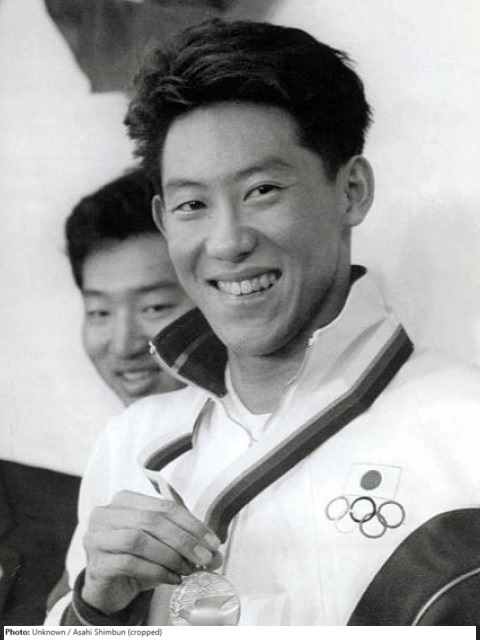
| Roles | Competed in Olympic Games |
|---|---|
| Sex | Male |
| Full name | Daichi•Suzuki |
| Used name | Daichi•Suzuki |
| Original name | 鈴木•大地 |
| Born | 10 March 1967 in Narashino, Chiba (JPN) |
| Measurements | 180 cm / 68 kg |
| Affiliations | Jutendo University |
| NOC |  Japan Japan |
| Medals | OG |
| Gold | 1 |
| Silver | 0 |
| Bronze | 0 |
| Total | 1 |
At the 1988 Olympics, Japan’s Daichi Suzuki was not favored for 100 backstroke gold, that role going to Soviet Igor Polyansky, who had won both backstroke events at the 1986 World Championships, and American Dave Berkoff, the world record holder who had pioneered a new technique of swimming as far as possible underwater after the turn, often not breaking the surface until the 35-40 metre mark. This usually gave him a big lead at the turn, and was so advantageous that the other swimmers, including Suzuki, adopted the technique.
Berkoff used his technique in Seoul to break the world record in the preliminaries, recording 54.51. In the Seoul final, Berkoff used the technique but only led Suzuki, who had increased his signature underwater dolphin kicks from 21 to 27, by about a body length after the turn, which was less than expected and was not enough, as Suzuki came home faster to win a surprising gold medal. As soon as the Seoul Olympics ended, Berkoff’s underwater start was banned, with the new rule requiring that backstrokers surface and begin stroking on top of the water by 10 metres, although this was later changed to 15 metres.
Suzuki first competed internationally at the 1984 Olympics, reaching the B-finals of both backstrokes. He won 100 back and medley relay golds at the 1986 Asian Games, both backstroke events golds at the 1987 Summer Universiade, and a 100 backstroke silver at the 1987 Pan Pacific Championships.
After graduating from Jutendo University with a physical education degree, Suzuki worked as a guest researcher at the University of Colorado from 1994-98. From 1998-2000, he was swimming coach at Harvard and from 2000-06 was swimming coach and associate professor at his alma mater Jutendo University.
In 2007, Suzuki received a doctorate degree from Jutendo University and became a board member of the Japan Swimming Federation in 2009. In 2010, he was elected to the World Anti-Doping Agency’s Athlete Committee after serving as a board member of the Japan Anti-Doping Agency and a member of the Japan Olympic Committee’s Athlete Committee. From 2012-14, Suzuki was President of the Japan Swimming Federation and also served as the president of the Olympians Association of Japan. In 2015, he was elected as the head of the Japanese Sports Agency, an external bureau of the Ministry of Education, Culture, Sports Science and Technology, formed in October 2015, in order to integrate the country’s sports administration, which had been dispersed among multiple ministries.
Personal Bests: 100 m backstroke – 55.05 (1988); 200 m backstroke – 2:03.36 (1988).
| Games | Discipline (Sport) / Event | NOC / Team | Pos | Medal | As | |
|---|---|---|---|---|---|---|
| 1984 Summer Olympics | Swimming (Aquatics) |  JPN JPN |
Daichi Suzuki | |||
| 100 metres Backstroke, Men (Olympic) | =11 | |||||
| 200 metres Backstroke, Men (Olympic) | 16 | |||||
| 4 × 100 metres Medley Relay, Men (Olympic) | Japan | 8 | ||||
| 1988 Summer Olympics | Swimming (Aquatics) |  JPN JPN |
Daichi Suzuki | |||
| 100 metres Backstroke, Men (Olympic) | 1 | Gold | ||||
| 200 metres Backstroke, Men (Olympic) | 15 | |||||
| 4 × 100 metres Medley Relay, Men (Olympic) | Japan | 5 |